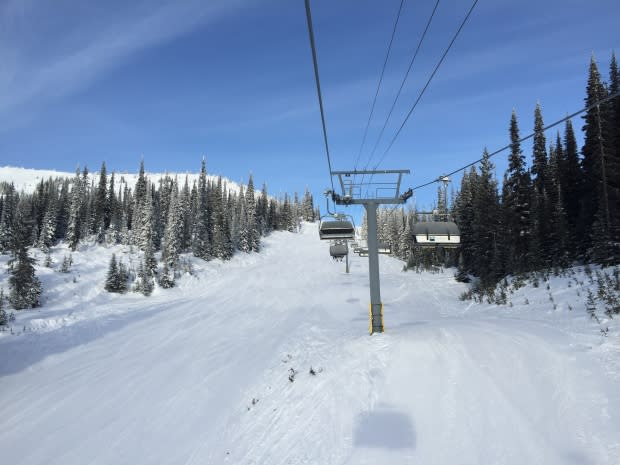'CPR all the way down the mountain': Sun Peaks has new way to save lives
Providing CPR to a patient while sliding down a ski hill in an emergency toboggan is no easy task — but, thanks to community donations, the ski community at Sun Peaks, B.C., now has a new way of saving lives.
The Sun Peaks Mountain Rescue Society has purchased an automated CPR machine, an expensive device that straps onto the chest of the patient in cardiac arrest and gives automated compressions.
"We've always struggled with the idea of how to get a patient down the mountain while ongoing CPR is in progress," said Sue Elder, a paramedic and volunteer ski patroller.
"It was always either sketchy for the patient or sketchy for the patrollers."

Better option
Elder described the two main options for administering CPR while transporting a patient off the mountainside: either the ski patroller hops in the toboggan and tries to give consistent compressions while bouncing down the hill, or he or she alternates between between moving and giving CPR.
Neither option is good for patient or patroller, she told CBC's Jenifer Norwell.
"This third option, although it's expensive, we think it's going to be well, well worth the cost because we're going to be able to safely do CPR all the way down the mountain," Elder said.
The Lifeline ARM compression device can cost more than $15,000. Donations from the community allowed the rescue society to purchase the machine.

'Extra chance of survival'
Dean Schiavon, prevention officer with Sun Peaks Fire and Rescue, said part of the problem is the extreme terrain first responders are dealing with on the mountain.
"We have very limited crews and we have a long wait time for an ambulance to get up here," he said.
"Doing CPR manually can really wear out the responders."
Chris Mark, patrol supervisor at the resort northeast of Kamloops, described the machine as a lifesaver.
"If we have a cardiac arrest out on the hill, it frees up hands to be able to start getting this patient off," he said.
"It just gives us gives us that extra chance of survival which we never had before."

